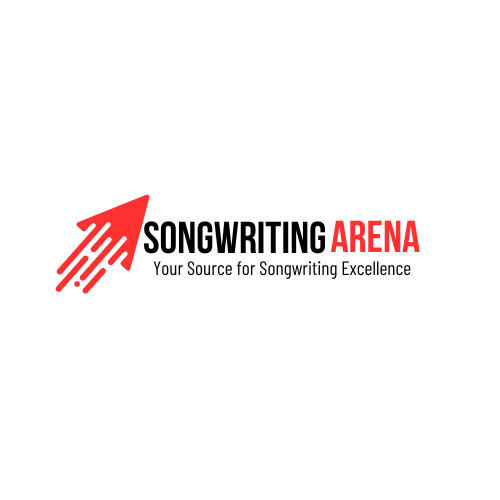Here in this blog post, we are going to tell you everything you may need to know Music Publishing, last week we talk about Music distribution, just incase you missed it, click here to read it.
Hey there, fellow music creators!
As a songwriter and artist who’s been in the game for a while, I know firsthand how confusing the world of music publishing can be. It’s a maze of jargon, contracts, and royalties, and it’s easy to feel overwhelmed. But trust me, understanding this stuff is crucial if you want to make a living from your music.
So, grab a cup of coffee, settle in, and let’s break down music publishing together. We’ll cover everything you need to know, from the basics to the nitty-gritty, so you can take control of your music career.
What is Music Publishing?
At its core, music publishing is the business of managing and monetizing your songs. It’s about making sure you get paid whenever your music is used, whether it’s on the radio, in a movie, or even as a ringtone.

Think of your songs as your babies. You birthed them, nurtured them, and now they’re ready to go out into the world and make their mark. A music publisher is like a manager for your songs. They take care of the business side of things, so you can focus on what you do best: creating awesome music.
Types of Music Publishing Deals
- Exclusive Publishing Deals: In an exclusive deal, you grant a publishing company the exclusive rights to your compositions. This means you can’t work with any other publisher or manage your own publishing.
- Non-Exclusive Publishing Deals: Non-exclusive deals allow you to work with multiple publishers or manage your own publishing simultaneously.
- Co-Publishing Deals: Co-publishing deals involve sharing the rights to your compositions with another party, often a record label or another publisher.
- Administration Deals: Administration deals involve hiring a publisher to manage your rights, while you retain ownership.
Music Publishing Rights: What You Need to Know
- Mechanical Rights: Mechanical rights cover the reproduction and distribution of your music, such as CD sales, downloads, and streaming.
- Synchronization Rights: Synchronization rights cover the use of your music in visual media, such as films, TV shows, and commercials.
- Print Rights: Print rights cover the publication of your sheet music or lyrics.
- Performance Rights: Performance rights cover public performances of your music, such as concerts and radio play.
How Publishing Deals Work
Music publishing deals come in many shapes and sizes. Here’s a simplified overview of the process:
- Research: Identify publishers that align with your genre and career goals.
- Pitch: Submit your music to publishers for consideration.
- Negotiate: If a publisher is interested, negotiate the terms of the deal, including the duration of the agreement, the rights being granted, and the financial terms.
- Sign: Once you’ve agreed on the terms, sign the contract and begin working with your new publisher!
Music Publishing Companies: Roles and Responsibilities
- Registering Your Music: Publishers register your music with performing rights organizations (PROs) and mechanical rights organizations.
- Licensing Your Music: Publishers license your music for use in various contexts, such as films, TV shows, and commercials.
- Collecting Royalties: Publishers collect royalties on your behalf and distribute them to you.
How to Choose the Right Music Publishing Company
- Research: Research different publishers and their reputations.
- Evaluate Services: Evaluate the services offered by each publisher.
- Red Flags: Watch out for red flags, such as high commission rates or poor communication.
The Music Publishing A-Team: Key Players
There are several key players in the music publishing world:
- Publishers: Companies that represent songwriters and composers. They handle licensing, administration, and often play a role in promoting your music.
- Performing Rights Organizations (PROs): These organizations collect performance royalties on behalf of songwriters and publishers. Major PROs include ASCAP, BMI, and SESAC (in the US).
- Songwriters and Composers: The creative masterminds behind the music. They own the copyright to their compositions.
The Publisher’s Playbook: What They Do for You
A music publisher wears many hats, but their primary role is to help you maximize your earning potential as a songwriter. Here’s what they can do for you:
- Licensing: They pitch your songs for use in film, TV, commercials, and other media.
- Administration: They handle the registration of your songs with PROs, collect royalties, and ensure you get paid accurately and on time.
- Promotion: They may help promote your music to industry professionals and secure opportunities for you to showcase your talents.
- Negotiation: They negotiate contracts and deals on your behalf, ensuring you get the best possible terms.
Key Terms in a Publishing Contract
- Copyright Ownership: Clarify who owns the copyright to your compositions. Most publishing deals involve transferring some or all of your copyright to the publisher.
- Term: The duration of the agreement, typically ranging from one to five years.
- Royalties: The percentage of royalties you will receive from various income streams.
- Advances: An upfront payment you receive from the publisher, which is recouped from your future royalties.
Music Publishing for Independent Artists
- Self-Publishing: Self-publishing allows you to manage your own rights and royalties.
- Admin Publishing: Admin publishing involves hiring a publisher to manage your rights while you retain ownership.
Registering Your Music: A Step-by-Step Guide
Okay, so you’ve poured your heart and soul into crafting that perfect song. Now, it’s time to make sure it’s protected. Registering your music is a crucial step in establishing your ownership and ensuring you get the credit (and the royalties!) you deserve.
Why Register?
- Proof of Ownership: Registration provides a legal record of your copyright, which can be invaluable if you ever need to take legal action against someone who infringes on your rights.
- Eligibility for Statutory Damages: In the US, if your work is registered, you may be eligible for statutory damages and attorney’s fees if someone infringes on your copyright.
- Public Record: Registration creates a public record of your work, deterring potential infringers and making it easier to license your music.
How to Register Your Music (US):
- Copyright Office: In the United States, you’ll register your copyright with the U.S. Copyright Office. You can do this online through their electronic Copyright Office (eCO) system.
- Application: You’ll need to fill out an application form, providing information about your work, including the title, authors, and date of creation.
- Deposit: You’ll also need to submit a copy of your work (a recording or sheet music) as a deposit.
- Fee: There’s a filing fee, which varies depending on the type of work and how you file.
How to Register Your Music (Nigeria):
- Musical Copyright Society Nigeria (MCSN): If you’re in Nigeria, you can register your music with MCSN. They are a collective management organization responsible for managing the rights of composers and publishers.
- Registration: You can register as a member of MCSN and then register your individual works. They have a membership registration process and specific forms for registering your songs.
- Documentation: You’ll need to provide documentation of your work, such as recordings and lyrics.
Tips for Success
Here are a few tips to help you navigate the music publishing world:
- Write great songs: This may seem obvious, but it’s the foundation of your success as a songwriter. Focus on crafting songs that are catchy, memorable, and resonate with listeners.
- Build your network: Connect with other songwriters, producers, and industry professionals. Attend industry events, workshops, and conferences.
- Educate yourself: Learn as much as you can about music publishing and the music industry in general. Knowledge is power.
- Be patient: Building a successful career as a songwriter takes time and persistence. Don’t get discouraged if you don’t see results overnight. Keep writing, networking, and learning, and eventually, your hard work will pay off.
FAQ: Your Burning Questions Answered
Do I need a lawyer to negotiate a publishing deal?
While it’s not strictly necessary, having a lawyer review your contract can be beneficial. They can help you understand the terms, negotiate better deals, and protect your interests.
Can I get my publishing rights back?
In some cases, yes. Many publishing agreements include reversion clauses that allow you to reclaim your rights after a certain period or if the publisher fails to meet certain obligations.
How much money can I make from music publishing?
The earning potential varies widely depending on the success of your songs, the types of licenses secured, and the terms of your publishing deal. Some songwriters earn a comfortable living from publishing royalties, while others may earn a more modest income.
Can I sign with multiple publishers?
It’s possible, but not common. Most publishers prefer to have exclusive rights to your catalog. However, you may be able to sign with different publishers for different territories or types of licenses.
What are some reputable music publishers?
Some well-known music publishers include Sony/ATV, Universal Music Publishing Group, Warner Chappell Music, Kobalt Music, and BMG Rights Management. However, there are many smaller, independent publishers that may be a better fit for your music.
Conclusion:
Understanding music publishing is a vital step in taking control of your music career. Whether you choose to go the DIY route or partner with a publisher, knowledge is key. Armed with this information, you’re well on your way to navigating the complex world of music publishing and maximizing your earning potential as a songwriter.
Additional Resources
-
ASCAP: www.ascap.com
-
BMI: www.bmi.com
-
SESAC: www.sesac.com
-
Harry Fox Agency: www.harryfox.com


